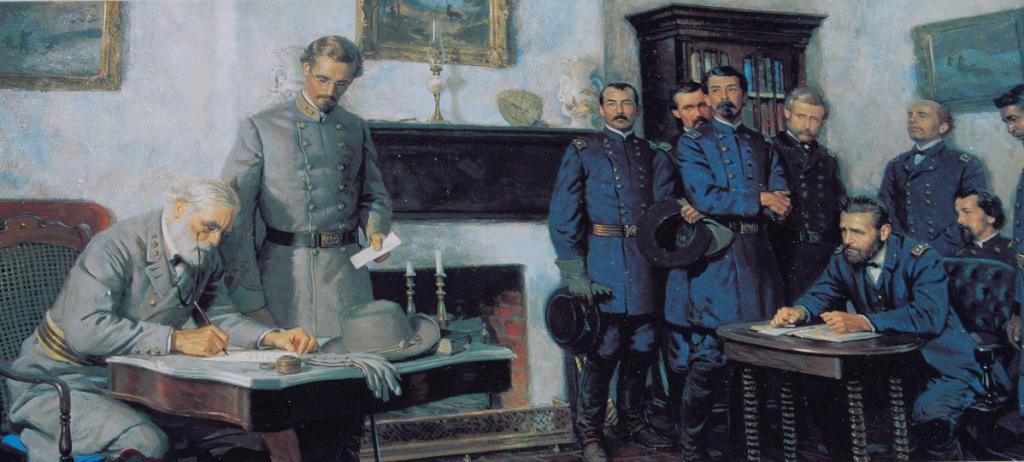
(Wikimedia Commons public domain)
In the wake of my comments about the disgusting emergence of at least a few apparent neo-Nazi Mormons, a new but minor controversy has arisen: It seems that I was too kind to the memory of General Robert E. Lee.
After all, he was fighting for slavery, was he not? And isn’t slavery immoral and evil?
At least one respondent seemed to suggest that I was attempting to justify or minimize the evil of black slavery. This didn’t amuse me at all. It’s an utterly false insinuation, and very offensive.
Others wanted me to acknowledge that the Confederacy was the American equivalent of the Nazi Third Reich.
Which I will not do, because the notion is flatly false.
With regard to enslaved blacks, of course, the Confederacy was obviously an authoritarian state enforcing an evil institution and oppressing human beings who should have been free. But with regard to the rest of the population, the Confederacy was a relatively loose association (rather too like the old pre-Constitution Articles of Confederation for its own good) of very limited governments — something for which I, as a limited-government conservative, have some sympathy. It was very far from a totalitarian state on the order of Hitler’s Germany, Stalin’s Soviet Union, Mao’s China, Castro’s Cuba, or Kim Jong-un’s North Korea.
Many Southerners were fighting for that vision of a power-limited confederation of states. Hence the name of their new (and short-lived) country.
I’ve mentioned here before my curiosity about when it was that verbs and pronouns accompanying the term United States of America went from being plural, as they were before the Civil War, to singular.
Consider, for instance, the Lee Resolution (or “Resolution for Independancy”) passed by the Second Continental Congress on 2 July 1776: “Resolved, That these United Colonies are, and of right ought to be, free and independent States, that they are absolved from all allegiance to the British Crown, and that all political connection between them and the State of Great Britain is, and ought to be, totally dissolved.”
We no longer say that “the United States have” or “the United States are.” Instead, in a rather odd bit of grammar, we say that “the United States is,” and that “the United States has.”
The defeat of Jefferson Davis and Robert E. Lee and the Confederacy marked the death knell, eventually, not only for understanding “the United States” as a plural phrase but for a serious conception of our nation as an assemblage of more or less independent states. (See “When did ‘The United States’ become a singular noun?”) Today, the states are, in many ways, mere administrative subdivisions of the all-powerful, centralized federal government. Most of the Founding Fathers, I suspect, would not have liked this. I don’t either, altogether. (Perhaps Alexander Hamilton would have been pleased.)
Anyway, Robert E. Lee and others were, in many cases, fighting as much for the old understanding of America as much as, or perhaps even more than, they were fighting for the continuance of slavery. (Although, regrettably, he didn’t come out in direct opposition to it, Lee’s attitude toward slavery was far from purely positive. In this regard, he was rather like George Washington.)
Finally, some have demanded that I and others acknowledge that Robert E. Lee was a traitor.
I regret to say that I cannot do this, either.
Here’s a piece by Walter E. Williams, who is one of my favorite writers on economic and political issues:
“Were Confederate Generals Traitors?”
(By the way, although it really shouldn’t matter, please note the photograph of Professor Williams.)
Consider these items, as well:
“American Heroes: General Robert E. Lee — Patriot or Traitor?”
More later, if needed.











